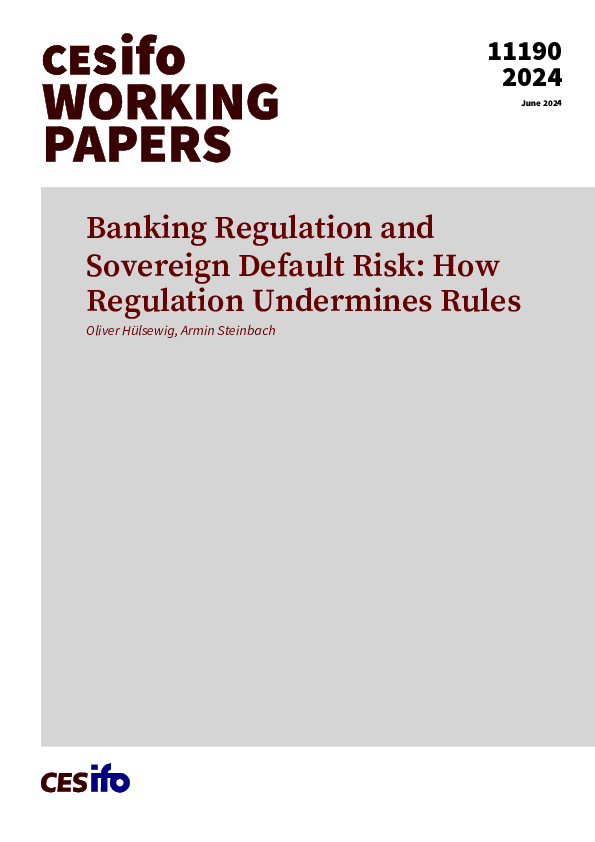Banking Regulation and Sovereign Default Risk: How Regulation Undermines Rules
CESifo, Munich, 2024
CESifo Working Paper No. 11190

Banking regulation invites banks to gamble when buying government bonds that regulators consider to be risk-free. The adverse effects on financial stability are known. In turn, this study shows that governments have an incentive to use banking regulation in order to enhance their fiscal leeway. We examine an unintended side-effect of banking regulation, namely the zero-risk weighting of sovereign bonds, which leads to lower costs of borrowing, encourages over-borrowing, and undermines constitutional fiscal rules. Our empirical analysis, by estimating local projections, examines the reaction of the fiscal balance in euro area periphery countries to a restrictive macroprudential capital regulation shock. We find that, unlike in the US, euro area banks’ share of domestic government bond holdings increases after the shock. This feeds into cheaper and more government borrowing laying bare the undesired interaction between banking regulation and constitutional rules. By comparing the US with the European Union, there is plausibility that the US implemented regulatory treatment and fiscal constitutional rules in a fashion that is better able to minimize the negative spillovers from banking regulation on sovereign borrowing. By contrast, the EU would benefit from more risk-based macroprudential regulation and a more credible constitutional no-bailout regime for sub-federal entities.
Public Choice